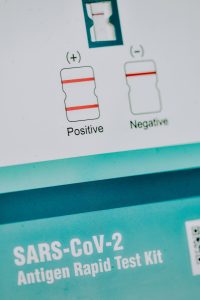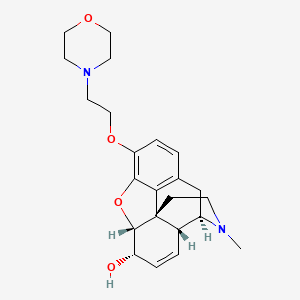Are your vaccinations up to date?

The topic of vaccinating is being discussed like it has never been before—thanks to the buzz around COVID-19 vaccines off late. Vaccines allow us to obtain active acquired immunity towards preventable diseases.
Apart from COVID-19 vaccines, there are many other vaccines available and recommended to the public. Let’s discuss the recommended vaccines for Malaysians and let’s see how much you’ve got covered!

How do vaccines work?
Vaccine contains antigens, a foreign substance that can induce immune responses such as producing antibodies. The whole part of a virus or a bacteria (killed or weakened) will be used as the antigen. For example, the pneumococcal vaccine contains a sugar-coated (polysaccharide) of the streptococcus pneumoniae.
Exposure to a vaccine will allow our body to develop protective immunity (vaccine-induced immunity) against specific antigens formulated in it. It’s essential to note that you are unlikely to get sick from a vaccine shot. This is because the amounts of antigen in vaccines are insufficient to cause infection.
Over the past decade, mRNA vaccines are becoming increasingly popular in the healthcare field. Unlike traditional vaccines, it utilizes messenger RNA (mRNA) to trigger a biological immune response. mRNA vaccines teach our bodily cells how to produce proteins that have the ability to trigger an effective immune response against pathogens. The Pfizer-BioNTech and Moderna Covid-19 vaccines are prime examples of mRNA vaccines.
Some say mRNA vaccines are better than traditional vaccines because they can generate a stronger immunity against pathogens. Though we don’t know the extent of the truth in these claims, we can surely expect more advancement in mRNA technology in the future.
What Are The Recommended Vaccines?
The Malaysian National Immunization Program Schedule, introduced in the early 1950s, is a list of vaccines recommended for people at different stages of their life. Vaccines listed in the National Immunization Program will be administered for free in Ministry of Health Malaysia facilities for all children.

As of 2021, the Malaysian National Immunization Programme has expanded protection against 13 major childhood diseases. These include:
- Bacillus Calmette–Guérin (BCG): Gives protection against tuberculosis.
- DTaP-IPV: A combination vaccination that gives protection against diphtheria(D), tetanus(T) and accelullar pertussis(aP).
- Hepatitis B: Prevents Hepatitis B infection.
- MMR: A 3-in-1 vaccine providing protection against measles, mumps and rubella.
- Haemophilus influenzae type B (Hib): Prevent Haemophilus influenzae Type B, a common infection among children that can potentially lead to brain complications.
- HPV: Human papillomavirus (HPV) vaccine that’s recommended for female children 13 years and above.
- Japanese encephalitis (JE): Provides protection against a viral brain infection that spreads through mosquito bites (recommended for children in Sarawak only).
- Poliomyelitis (polio): Prevents infection from poliovirus that can cause paralysis.
- Pneumonia: Prevents bacterial infection from streptococcus pneumonia that can negatively affect the lungs.
Yes, it seems like many vaccines to take note of. But remember that it’s in the best interest of your health. It’s unsafe to administer all the vaccines in one go without sufficient intervals. That being the case, make sure to consult your healthcare provider to discuss the best times for getting vaccinated.
What Are The Recommended Vaccines For Adults?
Vaccination for adults is a completely different ball game. Though the endorsement for adult vaccination is lesser compared to children, it shouldn’t be neglected.
The recommended immunization schedule for adults and elderlies include:
- Influenza
- Tetanus,diphtheria, pertussis (TdaP)
- Zoster
- Pneumococcal polysaccharide (PPSV23)
- Meningococcal
- Hepatitis A
- Hepatitis B
We may develop more health risks and medical conditions as we grow older. Henceforth, there’s no golden rule when it comes to adult vaccinations. What’s safe and recommended for an adult may not be the same for the next. Therefore, once again, openly discussing the intent to vaccinate yourself with a healthcare provider is essential.
How to know my vaccination status?
If you have any immunization records, you can view them to know your current vaccination status. It will contain detailed information such as the type of vaccine and administration date that you can refer to. However, if you don’t have any immunization documentation, meet your healthcare provider to perform a blood test.

Antibodies are Y-shaped proteins that result from the response of your immune system to a foreign invader (such as antigen from vaccines). If you’re vaccinated, antibodies (its spike protein, to be specific) against diseases such as measles or hepatitis B should be found in detectable levels in your bloodstream. This will reflect in blood test results from a certified laboratory which can help you determine whether or not your vaccinations are up to date.
Bottomline
The body does so much for us, but sometimes foreign invaders can take a toll on our health. Vaccines are a fantastic technology to help us prevent debilitating diseases and live a better quality of life. While it’s being talked about more than ever now, let’s also take some time to look into other vaccination possibilities.
Talk to your nearest healthcare provider today and take charge of your health!
References:
- Have I Been Vaccinated? | History of Vaccines. (2018). Historyofvaccines.org. Retrieved from https://www.historyofvaccines.org/content/articles/have-i-been-vaccinated
- Kusnin, F. (2017). VACCINOLOGY 2017 -III INTERNATIONAL SYMPOSIUM FOR ASIA PACIFIC EXPERTS IMMUNISATION PROGRAMME IN MALAYSIA. Retrieved from https://www.fondation-merieux.org/wp-content/uploads/2017/10/vaccinology-2017-faridah-kusnin.pdf
- Malaysia: Routine Immunizations | IAMAT. (2020). Iamat.org. Retrieved from https://www.iamat.org/country/malaysia/risk/routine-immunizations
- Recommended Vaccines by Age. (2022). Retrieved from https://www.cdc.gov/vaccines/vpd/vaccines-age.html
- Ros Azzimawati. (2011). Immunisation Schedule – PORTAL MyHEALTH. PORTAL MyHEALTH. http://www.myhealth.gov.my/en/immunisation-schedule/
- The Malaysian National Immunisation Programme (NIP) – Immunise4Life. Immunise4Life (2021). Retrieved from https://immunise4life.my/the-malaysian-national-immunisation-programme-nip/
The opinions expressed in the article are the writers’ own and do not reflect the view of MPS YPC.













